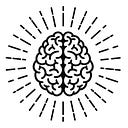Member-only story
Probabilistic Thinking
Whatʼs the Chance?
Robert Rubin describes the decision by probabilities mindset in ‘In an Uncertain World’:
All decisions are about probabilities.
For me, probabilistic thinking has long been a highly conscious process. I imagine the mind as a virtual legal pad, with the factors involved in a decision gathered, weighed, and totaled up. To describe probabilistic thinking this way does not, however, mean that it can be reduced to a mathematical formula, with the best decision jumping automatically off a legal pad. Sound decisions are based on identifying relevant variables and attaching probabilities to each of them. That’s an analytic process but also involves subjective judgements. The ultimate decision then reflects all of this input, but also instinct, experience, and ‘feel’. All the time bearing in mind that reality is always more complex than concepts and models.
A true probabilistic view of life quickly leads to the recognition that almost all significant issues are enormously complex and demand that one delve into those complexities to identify the relevant considerations and the inevitable trade-offs. With an enormous number of competing considerations, the key to reaching the best possible decision is to identify all of them and decide what odds and import to attach to each.
For example, consider a company that wishes to conduct a 10,000 piece test marketing campaign and must decide between mail and email. The company obtains pricing from its vendor…

